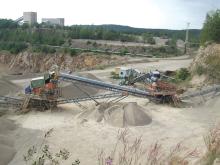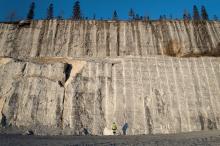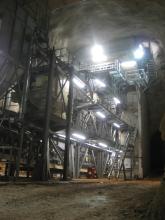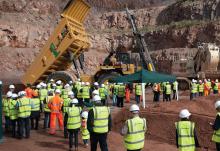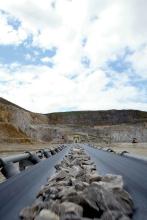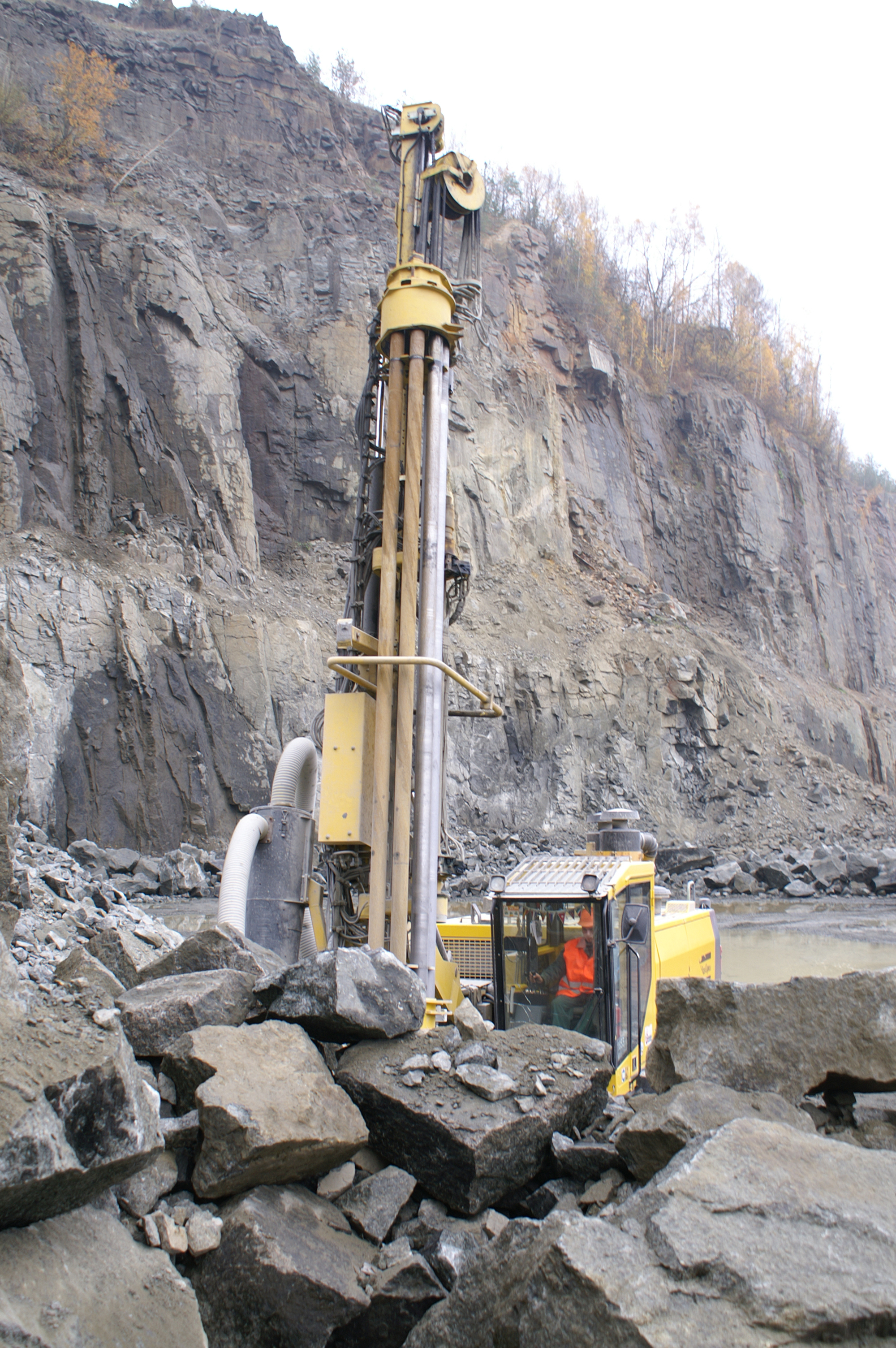
Unigran is investing in new equipment to meet demand from its Ukrainian Malin granite quarry
Rapidly rising demand for aggregates in the Ukraine has helped double production at Unigran's Malin quarry over the last six years to reach 2million m3 per year. The company is expecting calls for material from the granite quarry to continue rising and is investing in both new equipment and its workforce to meet this.
Operation of the quarry is benefitting from the delivery of new
According to Malin quarry manager and Unigran board member Grigoriy Koren, the Malin granite quarrying 120km west-northwest of Kiev started operation 55 years ago. "The Malin Stone Crushing Plant was privatised as an Open Joint Stock Company in 1996, the same year that the Unigran group was established by Ukrainian and other investors," he said. "In 2002 Malin became part of Unigran and is the largest of three main quarries operated by the group. Unigran Service provides the mobile equipment for each group operation."
Koren has worked at the Malin site for eight years as chief engineer and for the past three years as director.
The quarry, which now extends over 76ha, works a high quality body of medium-hard granite, yielding a range of aggregate products. The overburden is mainly unconsolidated sand, which is up to 7m thick.
The original production rate when the site was privatised was 45,000m3 per year but this has risen in stages. When Unigran took over the management and initiated a comprehensive programme to modernise the whole operation, output was 1million m3 per year and it has since risen to 2million m3 per year.
The quarry provides employment to 370 people and around 80% of the workforce is less than 25 years old and many of them benefit from a technical education. Koren commented that it is easier to train new well-qualified people than to retrain former rotary drill rig operators. The quarry works two eight-hour shifts for five days per week. The shifts run from 11am to 7pm and 11pm to 7am to take advantage of lower night time electricity prices.
Investment in new equipment at Malin started with a new drilling and blasting fleet with the primary aim of improving the quality of this process. According to Koren, Atlas Copco was already active in Ukraine, having established an office in 2000, and Unigran had seen the company's equipment in operation.
Unigran visited the SDE factory at Örebro and decided to buy an ROC L6 machine to trial at the site. Satisfied with the performance of this first rig Unigran Service bought two more and also an ROC L8.
Replacing an elderly Russian-built rotary drilling rig, the two ROC L6 machines normally drill enough holes to meet Malin's production target. "But they have also dramatically improved fragmentation quality," said Koren.
The Atlas Copco rigs drill either 146mm diameter holes on a 4.5m spacing or a 5m pattern of 149mm diameter holes, depending on the rock properties. Maximum penetration rate is 1m per minute but Koren said the company prefers to drill at 0.7m per minute in order to minimise downtime. Blasts yield up to 30,000m3 in dense rock.
The overburden at Malin is stripped by excavators and there are seven benches ranging from 12 to 14m in height, which take the quarry to a maximum depth of 96m. Blasted material is loaded by a
The process plant is equipped with

